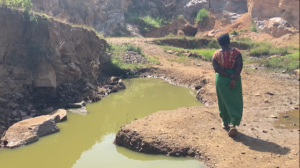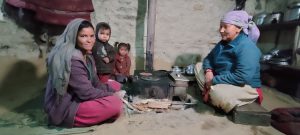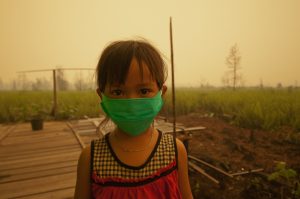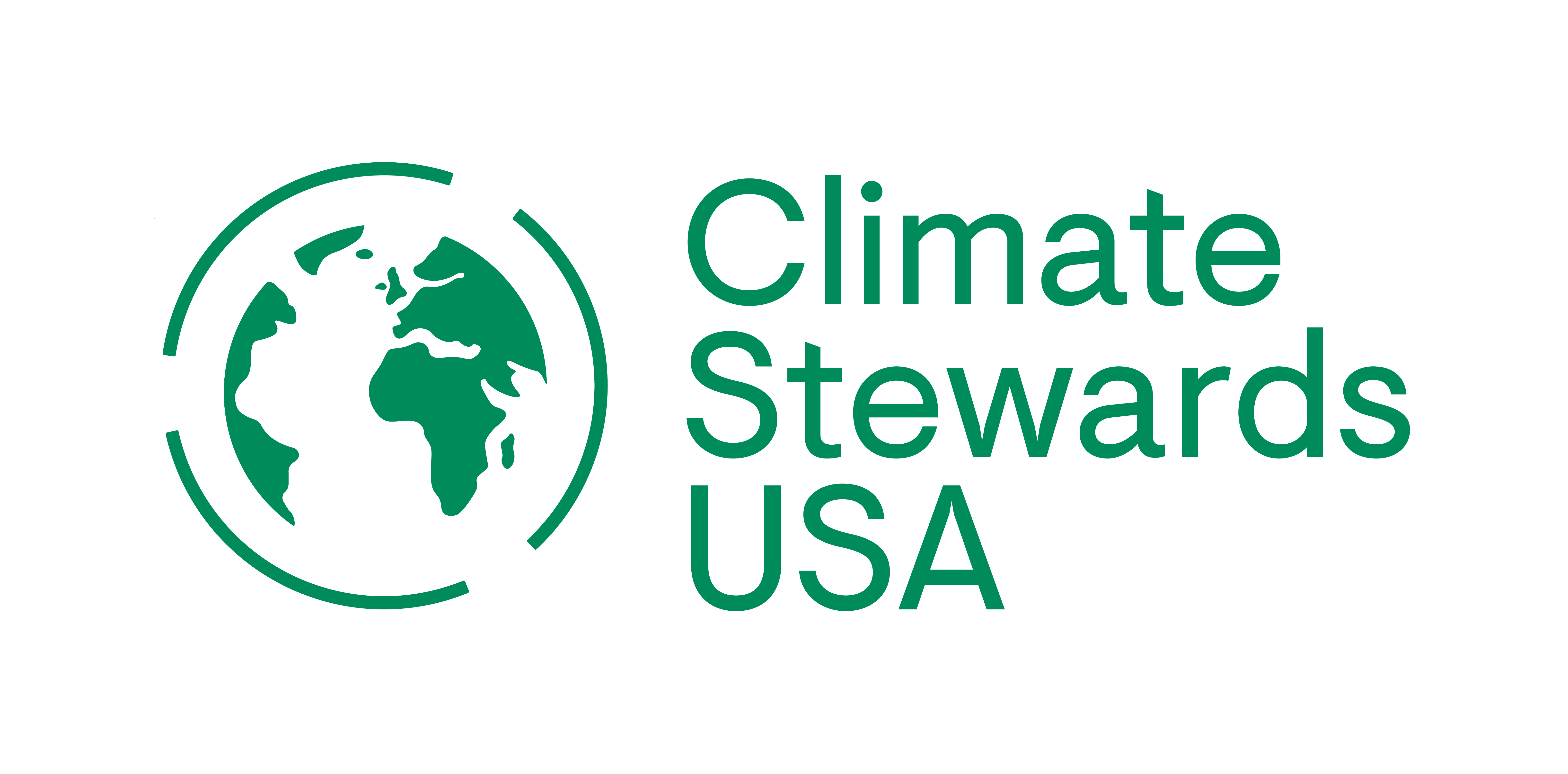In April, Climate Stewards funded Nobin Thomas to visit our partner, RIDS Nepal’s, clean cookstove project in the remote north-west of Nepal and carry out a due diligence survey. He found that the stoves are widely adopted and in regular use, confirming our initial calculations that each stove saves over 6 tonnes of carbon emissions per year. Read his reflections below.
What is the hardest part of your daily life? What makes you think twice before you step out of your bed? Is it to walk to the nearby jungle to gather firewood? Is it to climb over 3000+ meters above sea level while it rains to collect the local mushroom found in the high jungles?
Humla, one of the remote subalpine parts of Nepal, is truly a place of beauty and tranquility, but the hardships endured on a daily basis dull the picturesque surroundings. Even the best places on earth are difficult to live in when there is a lack of basic amenities like hospitals, roads and expensive everything. This is especially true when there is a landslide owing to the rain and the new road constructions.
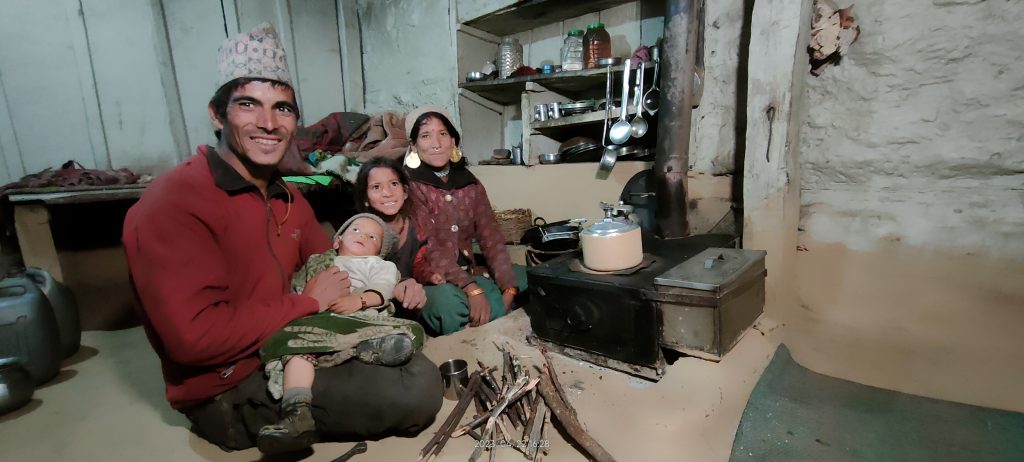
Life is a paradox in this part of the country. There is immense satisfaction in living off the produce of the land, which contains hardly any vegetables or greens, apart from the most commonly grown vegetable – potato. Potatoes are staple and as a result they are cooked in all sorts of ways, which you would never even imagine. As they say, necessity is the mother of invention. Yet the effort to grow these potatoes at -10 or -15 degrees celsius is just as hard.
Children as young as 13-14 years old work with their parents, helping them farm, or are often asked to bring firewood from the forests. It is no small task as the firewood gathered must last them at least 2-3 weeks. Having enough firewood for such a time was not a reality until the SMS or the Smokeless Metal Stove arrived in the village.
Being in a remote part of Nepal, most of the villages in Humla do not have access to basic amenities like gas. Therefore, firewood is a prime source of cooking, heating, and lighting, after dark. Foot-long logs were quite normal when it came to cooking food in these houses. Not only was the wood consumed quite rapidly, but it also produced lots of smoke and soot in the kitchen. Due to this, many people had lung-related or eye-related ailments.
As in most of the eastern parts of Nepal, Humla is also a patriarchal society, which meant that the population that suffered the most due to this method of cooking were the women. Families hardly got together in the kitchen to eat due to the smoke. Social stigma due to the traditional beliefs about menstrual cycles was already a burden, added with the pain of cooking with firewood in a confined space was nothing but misery to the utmost. Gorasingh Rawal’s wife says, “We have suffered due to the smoke, the soot on the utensils and the lack of hygiene in the kitchen. The smoke is too hard for us to bear. We fall sick quite often, which results us from being isolated from our families. It’s a hard life for us.”
“The smoke is too hard for us to bear. We fall sick quite often, which results us from being isolated from our families. It’s a hard life for us.”
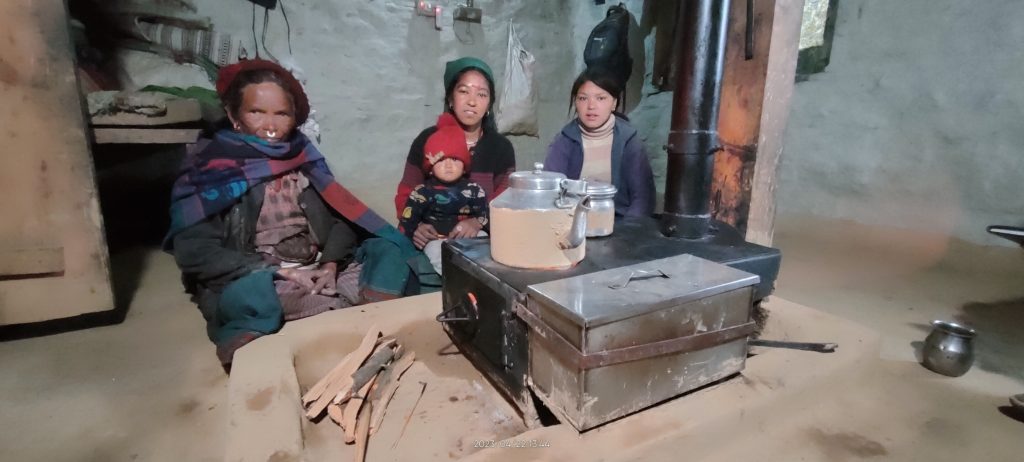
The Smokeless Metal Stove (SMS) is a life changer. It has not only opened the doors in the villages in Humla, much more than that, it has given women dignity in their households. The partners through which Climate Stewards distribute these stoves are RIDS Nepal, founded by Alex Zahnd coined the term “Dignified Development” to signify the impact that the SMS is having on the beneficiaries, especially women. How does it matter? Well, it does when you have to stay outside the house during menstrual cycles, exposed to the natural elements or wild animals or even sexual abuse by others.
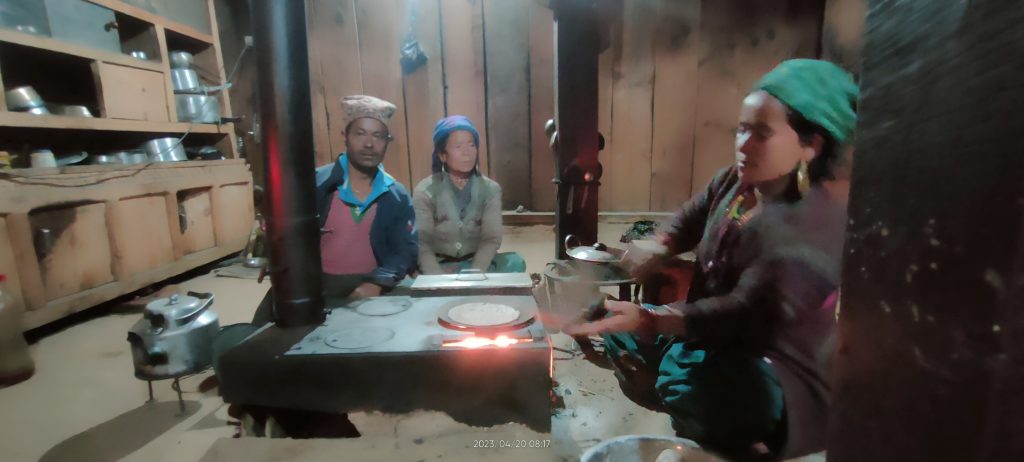
“Chhaupadi” is an old traditional practice in Nepal which banishes or separates young girls or women to mud huts or sheds during their menstrual cycle. It is still in practice in the villages of Humla – but there is a change. The advent of SMS in families has brought a sense of dignity to women as never before. Today, they are not subjected to staying in little mud huts, segregated from their families, owing to the opening gained through these stoves. The smokeless stoves opened the doors to raise awareness among the people of the village about menstruation. It has raised a sense of importance for education for children, especially girls, who would otherwise be married as young as 14-15 years.
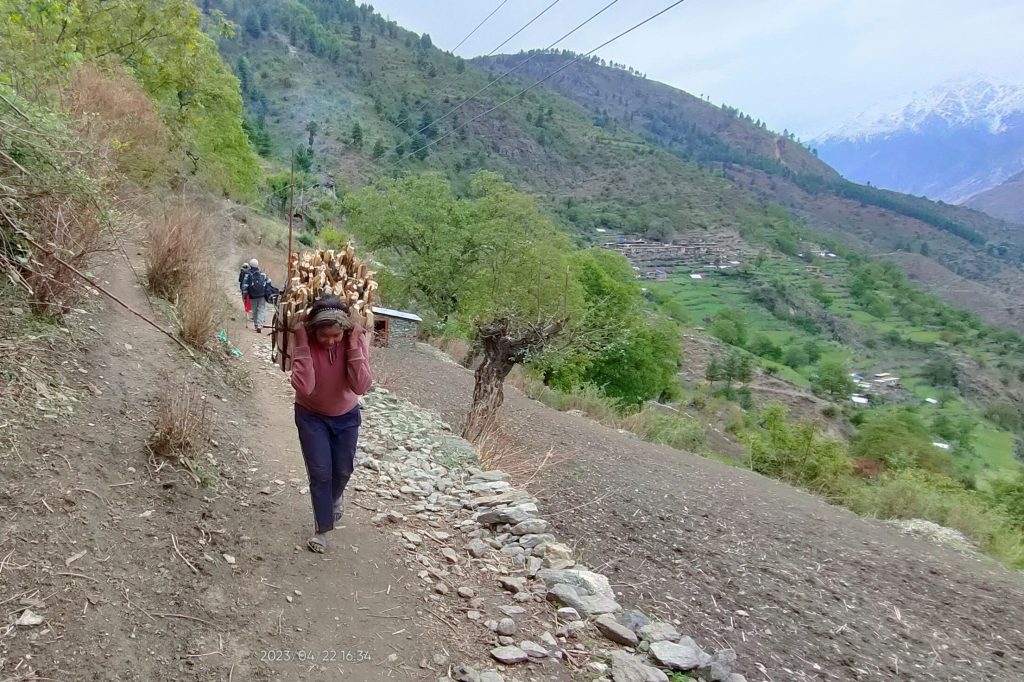
These are just a few benefits that I have enumerated in this article, but the impacts are far beyond these. Villages where there was once opposition to these stoves are now proponents of its benefits to the neighboring communities. Being part of the mission field here in Nepal for the past three years, I have felt humbled to see the difficulty with which people survive.
Having given a smokeless stove had people calling us their “gods”, a term which I told them was only reserved to Jesus. But how would they know this Jesus, unless they see and touch him in the form of those who bring his light into this darkness? People like Alex and the RIDS staff and partners from Climate Stewards have done so through the metal stoves. These stoves are not only relevant to their context, designed around it – totally indigenous, yet scientifically modern. Romans 10:14-15 portrays the work done by RIDS Nepal and Climate Stewards quite aptly, as it says,
“How will they preach unless they are sent? Just as it is written, “How beautiful are the feet of those who bring good news of good things!” – Rom 10:14-15
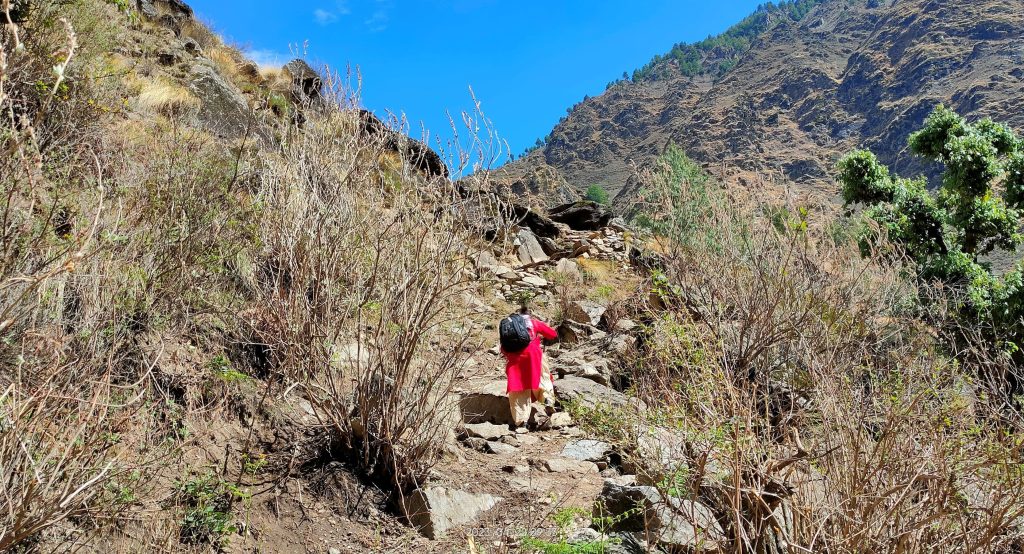
The work done in Humla is just the tip of the iceberg. The need is quite immense, the road treacherous or in some places non-existent. Despite all these odds of rain, sleet, landslides or extreme cold or snow, the staff at RIDS Nepal do their very best to get the facilities to these remote communities. Due to its inaccessible nature, everything here is quite expensive. For e.g. a 700g chicken costs NRS 3000 – 4000 and an egg NRS 30-40. Similarly, carrying equipment from the city to the village on a donkey is just as expensive.
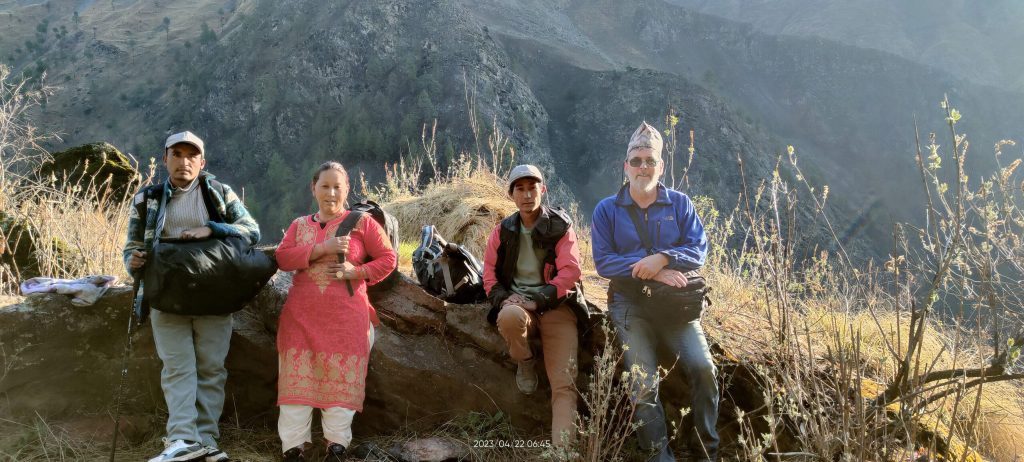
The need is enormous, requiring much support from those having the heart to see a change in such tough circumstances. The SMSs have reduced wood consumption by 50% in the past few years of their existence in the villages. They have contributed to slowing down deforestation, giving time for the forest to recover the impact, which was otherwise disastrous for this region. People are looking at the “gods” who provided SMS to step in for more. All of us know, we are not God, but to those living in despair and looking for hope, we are his hands and feet. Will we respond to this Macedonian call?

Nobin Thomas
Nobin is from Kerala, India and moved to Nepal in 2017 with his wife, Srijana, and son, Nathan. They currently live in Surkhet where Srijana and Nobin are missionaries with the local church and have started an English Service focused on the youth of the local area. Nobin also works as a part-time English teacher at a nearby boarding school.

